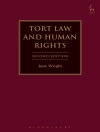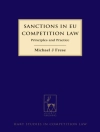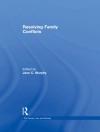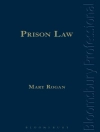
Available open access digitally under CC-BY-NC-ND licence. As climate change accelerates, our window for action is closing. To stay within the ‘Anthropocene’ – an epoch in which humankind as the dominant force shaping the planet retains a degree of control over the destructive processes it has unleashed – global warming must be kept below 2° Celsius.
This book explores the unprecedented technological and legal changes required to achieve this. Featuring contributions from leading experts, the essays examine the intersection of technology, law, and environmental values, offering diverse viewpoints on navigating the Anthropocene.
Revealing the controversies of rapid technological adoption and legal reform, this is a crucial analysis of a complex future whose many dangers for our society are barely understood.
Daftar Isi
1. Introduction – Alexander Zahar and Leonie Reins
Part A: Climate Technologies
2. Are Renewable Energy Technologies Compatible With Biodiversity Conservation? The Energy-Conservation Legal Nexus – Floor Fleurke and Phillip Paiement
3. Ambition in Nationally Determined Contributions: The Case of Hydropower – Alexander Zahar
4. An Essential Zero-Carbon Solution or a Perilous Energy Technology? Exploring the Nuclear Debate in EU Law – Kaisa Huhta
5. Critical Raw Materials in the Anthropocene: Regulatory Perspectives on Their Promise and Pitfalls – Seita Vesa
6. Hydrogen: What Does Its Deployment at Speed and Scale Mean for Legal Systems? – Ruven Fleming and and Kelsey Pailman
7. Genetically Modified Organisms: Is the Proof in the Pudding or the Process? – Mirta Alessandrini and Josephine Van Zeben
8. Cultured Meat and Dairy as a Game-Changing Technology in the Agricultural and Food Transition in the EU: What Role for Law? – Jonathan Verschuuren
9. Regulating Geoengineering – Gareth Davies
10. Solar Radiation Management Technologies: Research and Development Are Essential and Risks Can Be Governed – Manon Simon, Kerryn Brent, Jeffrey Mc Gee, and Jan Mc Donald
11. Whither Law and Regulation on Carbon Capture, Utilisation and Storage Technology? A Comparative Analysis – Hao Zhang
12. Evidence Based Climate Law? The Case of Carbon Capture, Use and Storage – Bettina Lange
13. Nature-Based Climate Solutions and the Rights of Nature: A Conundrum of Values – Felicity Deane and Justine Bell-James
14. Ban on Coal: Rationale and Legality for Restrictions on Coal Production, Sale, and Use – Daria Shapovalova
Part B: The Broader Normative Context
15. Should Owners of a Carbon-Intensive Assets Be Compensated if Required To Cease Operation Due to the Energy Transition? – Gunnar S. Eskeland and Ignacio Herrera Anchustegui
16. Rising Tides, Rising Justice: Navigating the Intersection of Climate Mitigation and Energy Justice – Laura Kaschny
17. Promethean Dreams: Intellectual Property and Climate Change in the Anthropocene – Matthew Rimmer
18. The Interface of Climate Technologies and International Trade Law: Tensions and Opportunities – Kateryna Holzer and Yulia Yamineva
19. Debating the Architecture of the International Climate Regime and Its Potential for the Regulation of Technology – Alberto Quintavalla and Leonie Reins
20. Thinking Technology Transfer Beyond Development – Morag Goodwin
Tentang Penulis
Alexander Zahar is Professor of International Law at Southwest University of Political Science and Law, in Chongqing, China, and a lawyer specializing in environmental litigation at Ashurst Australia. He is also a Lead Reviewer of greenhouse gas inventories, national communications, and biennial reports, as well as a Technical Expert of biennial update reports submitted by developing countries. He is the founder and editor of the journal Climate Law. His publications include Debating Climate Law (Cambridge University Press, 2021), co-edited with Benoit Mayer.











